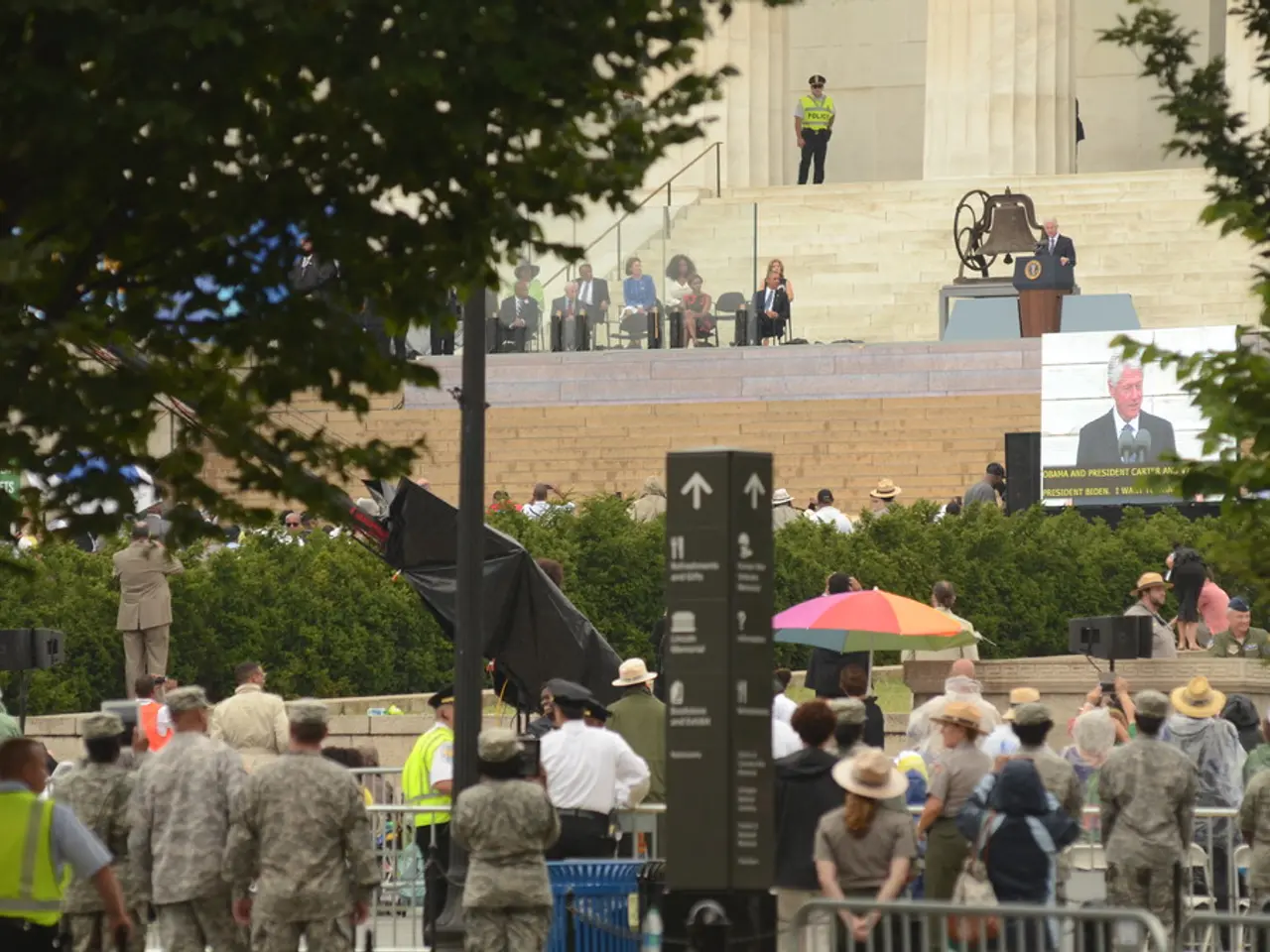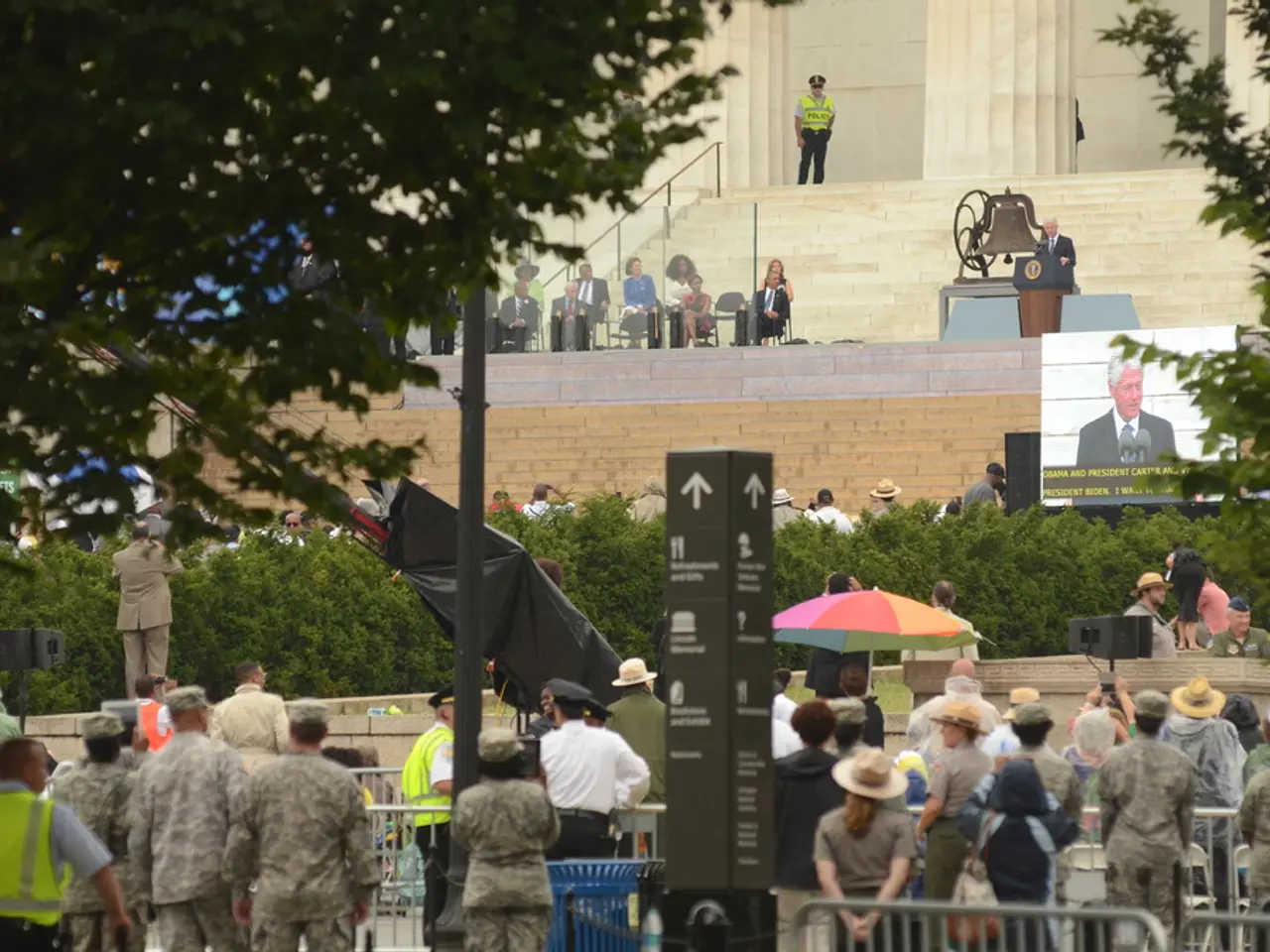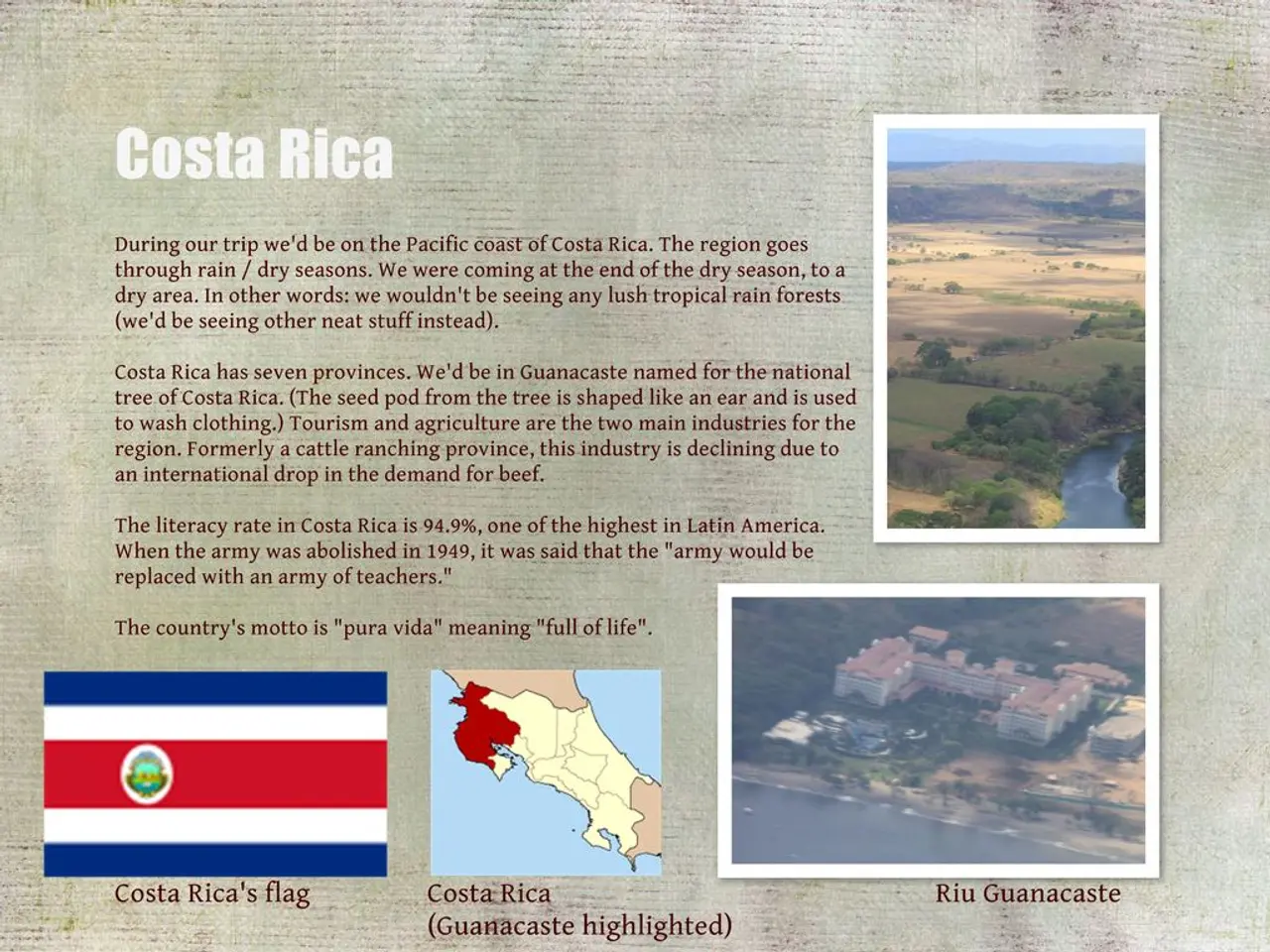U.S. confronted with potential escalation from Iran's top authority, as Iranian supreme leader issues ominous threats of retaliation.
Title: Ayatollah Khamenei Breaks Silence, Threatens U.S. as Iran Suspends IAEA Cooperation
Let's dive into the latest developments in the Middle East, shall we? Ayatollah Ali Khamenei, Iran's supreme leader, has finally broken his week-long silence and delivered a chilling warning to the USA. In a televised speech, he threatened retaliatory strikes against American bases, similar to those launched in response to U.S. bombings of Iranian nuclear facilities. "If provoked, the aggressor will pay a hefty price," Khamenei declared.
Meanwhile, Iran's Guardian Council, a powerful oversight body, has approved the temporary suspension of cooperation with the International Atomic Energy Agency (IAEA). The suspension comes as the Iranian parliament refused to allow IAEA inspectors into the country until the "security" of nuclear facilities is guaranteed. The organization must condemn the attacks by the U.S. and Israel on Iranian nuclear facilities and recognize the nuclear program, stated parliament speaker Mohammed Bagher Ghalibaf.
The IAEA is aware of these developments and has issued a statement, acknowledging that they have yet to receive any official communication from Iran on this matter.
Over the weekend, the U.S. entered the conflict between Israel and Iran, striking the underground Fordo nuclear facility with bunker-busting bombs, among other targets. The extent of the damage remains unclear, as experts are still assessing the situation. However, the White House has not made any plans for new Iran talks as of now.
The secretive DIA report suggests that the attacks may have set back Iran's nuclear program by a few months. US Defense Secretary Pete Hegseth, however, questioned the credibility of this report, stating that it needs further refinement with additional information.
Amidst the ceasefire, Iranian airspace remains largely closed. The measure is set to extend until Friday at 14:00 local time (12:30 CEST), with some relaxations granted for domestic flights. International flights, however, continue to be barred, with the capital's airport in Tehran remaining shut.
Did You Know?
The U.S. and Israeli strikes on Iranian nuclear facilities have caused moderate to severe damage, particularly to centrifuges and critical infrastructure. Though the sites were not physically collapsed, these strikes have significantly delayed Iran's nuclear capabilities by many years. Iran's response acknowledges the damage, but the regime has also intensified internal security efforts amid growing tensions.
Stay tuned for more updates as this tense situation continues to unfold. Things are heating up in the Middle East, and we'll be here to keep you informed!
Further Reading
- War in the Middle East: Iran's president ready to return to "negotiation table"
- War in the Middle East: No winner, no stability
- Nuclear program talks: White House: No plans for new Iran talks yet
- IAEA: No official communication received
Politics and general news continue to swirl around the escalating war-and-conflicts in the Middle East, with Iran's supreme leader, Ayatollah Ali Khamenei, threatening retaliatory strikes against American bases following the U.S.'s latest bombings of Iranian nuclear facilities. Meanwhile, Iran has suspended its cooperation with the International Atomic Energy Agency (IAEA), refusing to allow IAEA inspectors into the country until the "security" of nuclear facilities is guaranteed, and condemning the attacks by the U.S. and Israel on Iranian nuclear facilities.






